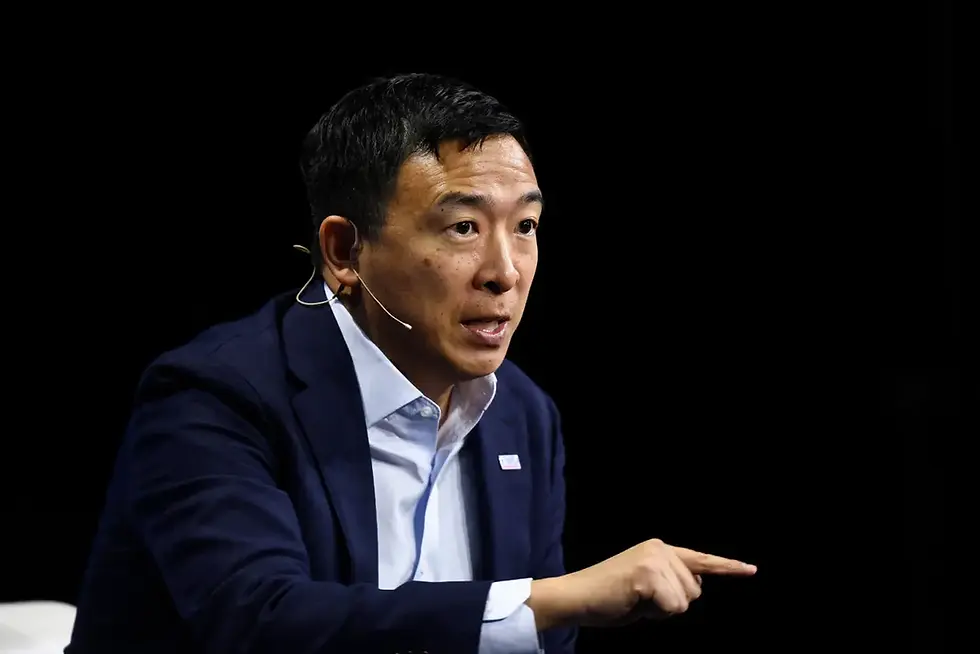Vietnam's Fintech Power Play: MoMo’s Profit Milestone Signals a New Era for Southeast Asia
- Amy Adelaide

- May 29, 2025
- 5 min read

Vietnam, once better known for its textile exports and agricultural output, is now surging into the global spotlight for an entirely new reason—technology unicorns. These homegrown companies, valued at over $1 billion each, have emerged from a country historically shaped by war, rapid industrialization, and now digital transformation. The founders behind these companies are not only reshaping Vietnam's domestic landscape but also setting new standards across Southeast Asia’s fintech, blockchain, and digital service ecosystems.
This article dives deep into Vietnam’s unicorn evolution, the economic and social catalysts behind their success, the founders driving the revolution, and what this signals for the broader Southeast Asian region.
The Rise of Vietnam’s Tech Ecosystem
Vietnam’s transformation into a digital powerhouse has not been accidental. It is the result of coordinated developments in infrastructure, government policy, human capital, and entrepreneurial spirit.
Key Drivers Behind the Tech Boom
Digital-First Population
Over 72% of Vietnam's population is online, with mobile internet penetration among the highest in Asia.
A median age of just over 32 means a tech-savvy, mobile-native consumer base that is open to adopting digital services.
Favorable Government Policy
Vietnam’s National Digital Transformation Program (2020–2025) seeks to make 50% of all payments cashless by 2025.
Investment incentives for startups in priority sectors like fintech, e-commerce, and AI.
Skilled Human Capital
Vietnam produces 400,000+ STEM graduates annually, ranking high among Asian nations for coding and engineering skills.
Tech salaries remain competitive, giving startups an edge in maintaining agile development cycles without prohibitive costs.
Increased VC and PE Interest
According to Bain & Company, Southeast Asia's tech investment hit $11 billion in 2021, with Vietnam drawing nearly 18% of the region’s deal volume.
Vietnam’s Unicorns: A Snapshot
Company | Sector | Year Founded | Est. Valuation (USD) | Key Product/Service |
VNG Corporation | Gaming & Cloud | 2004 | $1.5B+ | Zalo, Zing MP3, VNG Cloud |
MoMo | Fintech | 2007 | $2B+ | Mobile Wallet & Financial Super App |
VNLife (VNPay) | Fintech | 2018 | $1.4B | QR Payment Network, Banking APIs |
Sky Mavis | Blockchain | 2018 | $3B (Peak) | Axie Infinity, Ronin Blockchain |
Each unicorn has carved out dominance in specific domains—gaming, financial services, blockchain—yet all exhibit the same DNA: local roots, global ambitions, and innovation-first philosophies.
MoMo: A Case Study in Fintech Evolution
Originally launched as a SIM card-based money transfer service, MoMo has evolved into a super app that aggregates bill payment, e-wallet functions, credit scoring, donations, and micro-investments.
Milestones
Over 40 million users as of 2024.
Processes over 1.6 billion transactions annually.
First Vietnamese fintech to post a full-year profit in 2023, signaling sustainable scaling rather than cash-burn-led growth.
“Our goal is not to become a bank but to provide digital financial access to every Vietnamese, especially those without bank accounts,”— Nguyen Manh Tuong, Co-Founder and CEO of MoMo
Competitive Edge
Seamless partnerships with over 50 banks and thousands of merchants.
AI-driven credit scoring system for micro-lending—serving financially excluded customers.
VNG Corporation: From Gaming to Global Tech Conglomerate
Founded in 2004 by Le Hong Minh, VNG started with online games but expanded into cloud services, AI, music streaming, and messaging platforms.
Flagship Products
Zalo: Vietnam’s leading messaging app with over 70 million users.
Zing MP3: One of the top local music streaming platforms.
VNG Cloud: Competes directly with AWS and Google Cloud in Vietnam.
Strategic Leverage
VNG monetizes user traffic across its portfolio by integrating fintech features such as e-wallets and virtual currencies.
Global Expansion
VNG was the first Vietnamese tech firm to announce plans for a U.S. IPO, signaling ambition to scale beyond ASEAN.
VNLife: Quiet Giant of Digital Payments
Though less media-hyped, VNLife, through its subsidiary VNPay, has constructed Vietnam’s largest cashless payment network. Unlike consumer-facing apps, VNLife builds white-label solutions for banks.
Impact Metrics
Over 35 million monthly active users through partner banking apps.
QR code systems deployed at over 600,000 POS terminals across Vietnam.
“We believe financial infrastructure should be embedded, invisible, and omnipresent. That’s where we operate,”— Tran Tri Manh, Founder and CEO, VNLife
Differentiation Strategy
VNLife doesn’t compete with banks—it empowers them with tech infrastructure, giving it a moat against regulatory risks and fostering institutional trust.
Sky Mavis: Disrupting Gaming with Blockchain
Sky Mavis burst onto the global scene with Axie Infinity, a game that introduced “play-to-earn” mechanics using blockchain and NFTs. By 2021, it had:
2.8 million daily active users
Facilitated $3.5B in NFT trading volume
Sparked the rise of digital economies in countries like the Philippines
Although the 2022 Ronin Bridge hack was a setback, CEO Nguyen Thanh Trung steered recovery by securing investments, repaying losses, and overhauling security.
Future Focus
Building Ronin, a blockchain ecosystem for gaming
Expanding into new NFT-based applications beyond gaming
Introducing developer tools for third-party studios
Comparative Strengths of Vietnamese Unicorns
Company | Consumer Focus | Enterprise Focus | Revenue Model | Global Reach |
MoMo | High | Medium | Transaction & Ad Fees | Medium |
VNG | High | Medium | Ads, Games, SaaS | High |
VNLife | Medium | High | B2B API Licensing | Low |
Sky Mavis | High | Medium | NFT, Tokens, SDK | High |
The Role of Founders: Vision, Risk, and Resilience
Vietnam’s unicorn founders have displayed a unique blend of technical acumen, social awareness, and cultural fluency. Most are Vietnamese-educated, with few spending time abroad—a contrast to many regional peers.
Their leadership has been defined by:
Localized strategies that understand Vietnamese consumer psychology
Bootstrapping discipline, especially in MoMo’s early years
Technological self-reliance, avoiding overdependence on Western platforms
Their ability to balance innovation with sustainability is a defining trait that positions Vietnam as a stable yet fast-moving tech hub.

Opportunities and Risks Ahead
Emerging Opportunities
AI Integration: Especially in personalized fintech and anti-fraud applications.
Green Tech: Digital solutions for energy efficiency, carbon trading, and sustainable agriculture.
EdTech and HealthTech: Rising middle-class demand for private education and healthcare digitization.
Key Challenges
Regulatory Uncertainty: Fintech, blockchain, and data privacy laws remain in flux.
Global Economic Pressures: Inflation and tightening capital markets could slow down funding cycles.
Talent Drain: As global tech firms recruit Vietnamese developers, retaining top talent will be crucial.
Conclusion
Vietnam's tech unicorns have not only validated the country's digital potential but have also redefined what is possible in emerging markets. These companies—MoMo, VNG, VNLife, and Sky Mavis—are not outliers; they are trailblazers setting the stage for the next generation of innovation in Southeast Asia.
Their stories reflect a broader narrative: that when you combine digital literacy, strategic governance, strong founders, and investor confidence, even a developing country can birth world-class tech giants.
As Vietnam continues to evolve into a technology export hub, expect more unicorns to emerge—not just in fintech or gaming, but across AI, robotics, clean tech, and beyond.
At 1950.ai, our team of experts—led by renowned analyst Dr. Shahid Masood—continues to decode the trajectories of emerging tech economies. From AI to blockchain, and from geopolitical tech diplomacy to startup intelligence, our insights help policymakers, investors, and tech entrepreneurs make informed, data-backed decisions.




Comments